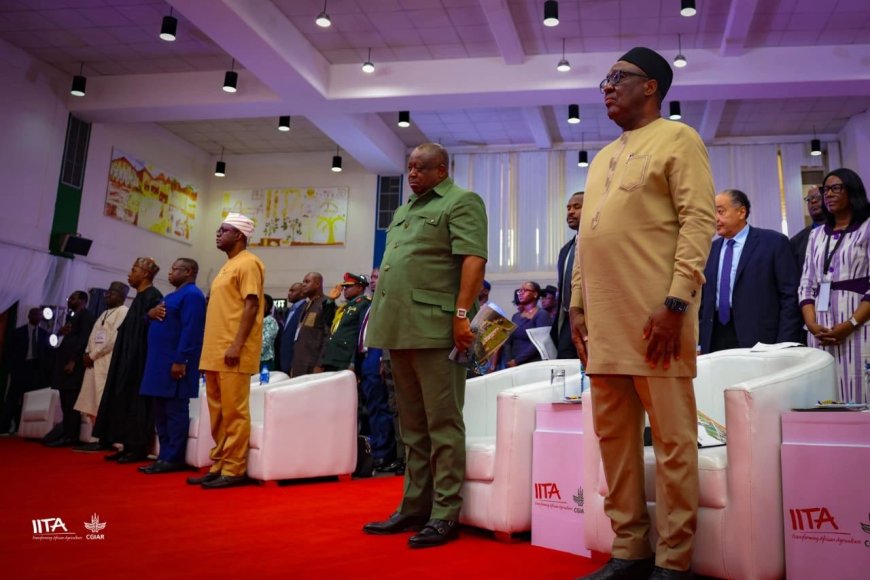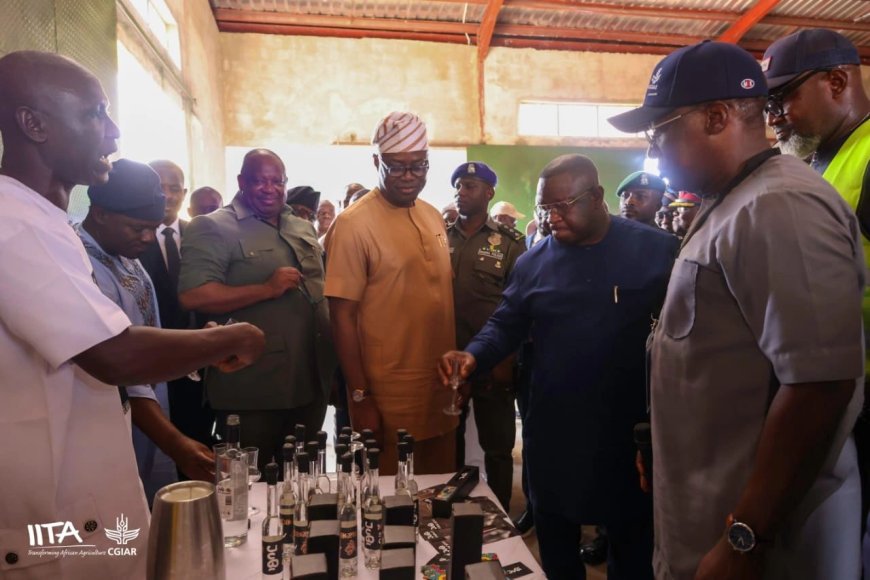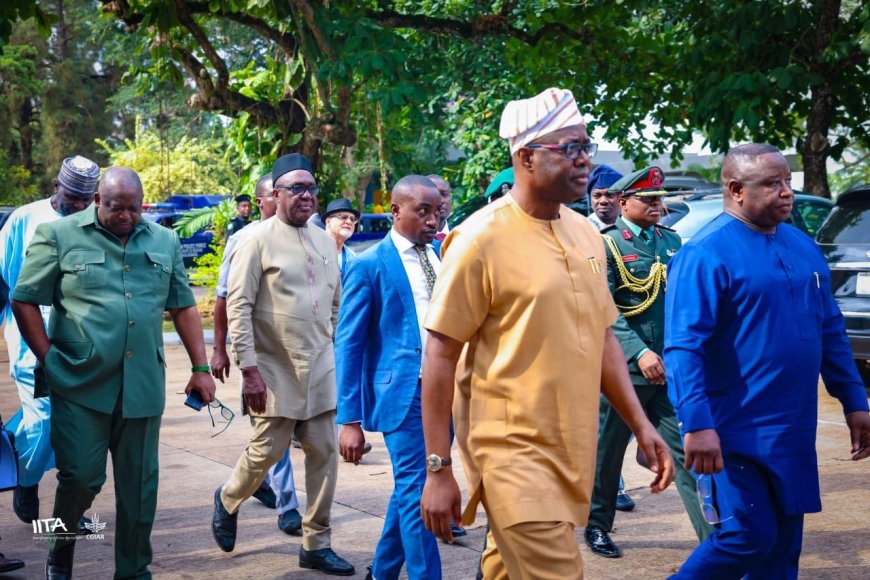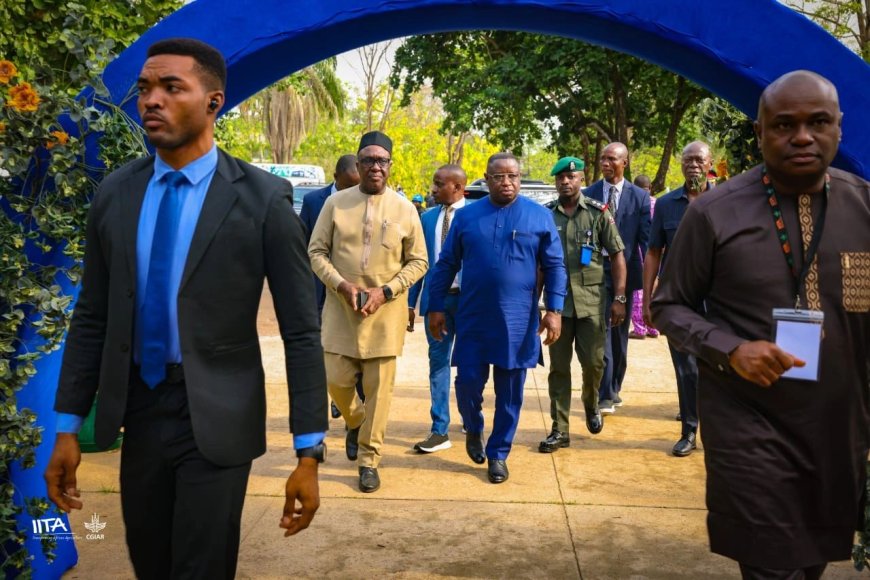President Julius Maada Bio Visits IITA to Advance Feed Salone Program and Regional Agricultural Transformation
President Julius Maada Bio’s visit to IITA highlights the Feed Salone Program and strategies for agricultural transformation in Sierra Leone. Explore discussions on sustainable agriculture, regional partnerships, and achieving food sovereignty in Africa.

President Julius Maada Bio Travels to IITA to Take Forward Feed Salone Programme and Regional Agribusiness Transformation
On his third day of a trip to the International Institute of Tropical Agriculture (IITA), the President of Sierra Leone Julius Maada Bio's schedule was focused on spearheading debate on agro-transformation in the region as well as plans to ensure success for the Feed Salone Program. The tour underscored the urgent imperative for Africa to redesign its agri-systems so that they would be inclusive, resilient, and sustainable with a firm commitment to achieving food sovereignty for Africa.
During a high-level panel session moderated by Dr. Simeon Ehui, Director General of IITA, the critical role of agriculture in addressing global food systems challenges was highlighted. Dr. Ehui stated, "We are at a critical juncture in world food systems, and we have the task of reframing agriculture to be more sustainable, more resilient, and more inclusive." He mentioned that with appropriate partnerships and scaling up innovations, Africa can feed itself and become a significant contributor to global food security.

The panel session featured witness accounts of strong testimonies by the Governors of Oyo, Plateau, and Borno States in Nigeria, who presented their success and experience with agricultural transformation initiatives. Their testimonies were worth being emulated as examples of how cooperation among states and innovative approaches can drive agricultural development.
Among the other crucial sessions was agricultural finance models, which was presided over by Sierra Leone's Minister of Finance, Sheku Ahmed Fantamadi Bangura. The session included prominent speakers such as Ndiamé Diop, World Bank Country Director for Nigeria; Dr. Abdul Kamara, African Development Bank Group Director General for Nigeria; and Abdul Muwonge, World Bank Country Manager for Sierra Leone. They made presentations on the financing modalities to amplify food systems transformation in Sierra Leone, taking into consideration the goals of the Feed Salone Program.

One of the day's highlights was President Bio's visit to the Fasola Agribusiness Hub, an exemplar of IITA's effective public-private partnerships and government participation. The hub is an example of how partnership can lead to agribusiness innovation and the development of sustainable agricultural value chains.
President Bio's visit to IITA is a testament to the rising need for Africa to improve regional interactions and cooperation in the quest to achieve food sovereignty. The discussions and activities during the visit underscore the importance of transforming Africa's agricultural sector to achieve food security, economic growth, and resilience in the face of global challenges.
The Feed Salone Program, one of the cornerstones of Sierra Leone's agricultural policy, aims at revolutionizing the country's food systems through innovation, partnership, and sustainability. The President Bio's engagement with IITA and regional stakeholders is evidence of his strong commitment to spearheading agricultural transformation not only in Sierra Leone but on the entire continent.

As Africa takes steps to meet the twin challenge of climate change and population increase, initiatives like the Feed Salone Program and collaborations with institutions like IITA offer a model for a food-secure future. President Bio's visit is a giant step towards that fate, demonstrating the power of regional cooperation and innovation in remaking Africa's agricultural fate.
 Kinyarwanda
Kinyarwanda
 English
English







































































